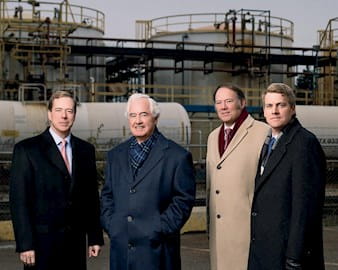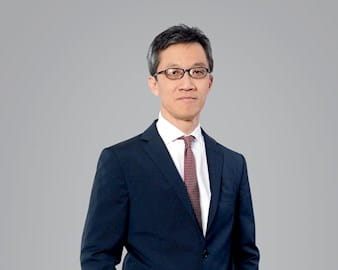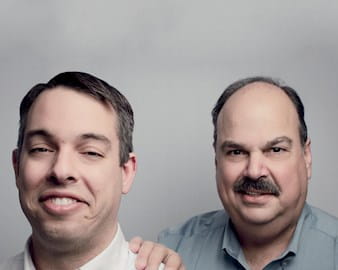
A shared Booth background across generations keeps these family businesses running in harmony.
- By
- May 01, 2017
- Global

When a family business has multiple generations and hundreds of stakeholders, how does an individual stand out? Create meaningful change? Carry the business into the future?
We talked with Booth alumni who lead or manage family-owned businesses, from a conglomerate in Thailand to a national baker of breads that got its start in a Chicago basement. They all sought a Booth education because of its reputation for intellectual rigor, lessons in analytic problem solving, and world-class faculty. The family members who run these businesses have more than one generation schooled in The Chicago Approach™. They reached a point in their professional lives—inside or outside the family firm—when they saw the need to boost quantitative skills. For some, that time came after a world event such as the 2008 crash, which upended commodity prices. For others, the education was a way to step up and assume new roles.
Relying on data instead of emotion eases decision making, they say. This doesn’t mean they’re bloodless. Always they have in mind their founders, most of them immigrants, who created what they now run. They share holidays with generations of stakeholders: there’s no ducking a failed venture.
To them, it’s a comfort to share a Chicago education. Opinions matter, of course, but data-based problem solving wins every time.

Family-run PVS Chemicals Inc. has not one, not two, not three, but four executives who’ve earned MBAs from Chicago Booth. “We problem solve in the same way,” said James B. Nicholson, ’67, chairman and patriarch of the Detroit-based company, begun by his father in 1945. “It’s data based, but everyone brings opinions. Here’s the key: the rigor we learned at Chicago takes out the emotion. All our decisions aren’t perfect, but we don’t look backward. That comes from Chicago.”
PVS Chemicals is a worldwide maker, distributor, and marketer of chemicals and a transporter of hazardous materials. The company has grown exponentially, and geographically, since its founding. Three sons followed Nicholson into the business and to Booth: James M. Nicholson, ’94, president and CEO; David A. Nicholson, ’97, CEO of manufacturing; and Timothy F. Nicholson, ’09, CFO and president of distribution group. Nicholson Sr. did not hesitate to steer his sons in the direction of Booth. “I was the advocate: the quality, the intellectual ferment, the rigor,” he said. “I saw the value.”
Net result? The four employ Chicago’s particular methodology daily. “Do we reinvest and expand, or sell?” said David Nicholson. “Like Chicago, we have a collaborative method. We’re different people looking at the same set of facts, choosing the best path forward. We discuss rationally.”
After earning a BA in economics from Stanford University, Nicholson Sr. came to Chicago to study with Milton Friedman. “Chicago was the place,” he said. “The study of economics was treated in an important way.” After four years in rural California, he was thrilled to be back in a city. He knew he’d returned to the industrial Midwest his first day at Chicago, when the fuss on campus was a robbery at the Office of the Bursar. After more schooling at the London School of Economics, Nicholson went into banking. He was working at First National Bank of Chicago in Dublin when, in 1972, his father asked him to come home and take over the business.
Tim Nicholson was among the students who founded Booth’s Private and Family Business Group (see “It’s All Relative to this Booth Student Group”). A history major in college, he was working after graduation as a financial controller for a Seattle business when he went looking for an education that would give him a framework to solve complex problems. At Booth, he and others saw the need for a student group focused on family business. “There was nothing like it at Booth,” he said. “So we got together at the Pub in Ida Noyes and formed the group.”
Tim Nicholson savors his family’s shared education. “It serves me well, every day,” he said. “We have a data-driven culture and we make good decisions using data. I carry that education forward here.”

Already CEO of his family’s shopping-center empire in Thailand, Kobchai Chirathivat, ’08 (AXP-7), enrolled in the Executive MBA Program in Singapore in 2002. Seven days per month, over five years, Chirathivat joined a multicultural community of high-stakes learners in open discussion and project collaborations. The experience, he said, changed the way he does business. He became a visionary.
“With the critical thinking I learned in the program, I widened my vision: How can we position our business in neighboring countries and in the global economy?” Chirathivat said. “Now I’m initiating out-of-the box thinking and strategy with my team, daily.”
Chirathivat is executive director at Central Group of Companies, which had its start in 1947 as a general merchandiser in Bangkok’s Chinatown neighborhood. The company, which includes 60 family members, is still based in Bangkok; it is mostly known for its shopping mall developments, though it also owns and operates department stores, electronics retailers, restaurants, and a distribution company that places branded fashion, electronics, and cosmetics. The conglomerate has a presence throughout Thailand.
Because he could get a Booth education in Asia, Chirathivat felt he could take advantage of the school’s offerings and run the family’s business at the same time. He was attracted to the program because it offered the same professors and the same challenging courses found in Chicago. It wasn’t easy, he said, and he nearly gave up on his studies because of the demands of simultaneously running a conglomerate. Professors and fellow students, with whom he is still close, urged him to stick with it.
Strategy class proved invaluable, said Chirathivat, who’d been trained as a marketer. “This class completely changed my way of thinking,” Chirathivat said. “It taught me to see the hidden links between scattered dots on a big picture.” That’s helped the family business better compete locally and regionally, according to Chirathivat. “It takes more than macro and microeconomic theories to succeed, I’ve found,” he said. “It’s about knowing how to apply what you’ve learned, a keen local perspective, and an analytic mindset. Put those three together, and you’ll create growth and opportunity in your market. More than anything, this is what I learned at Booth.”
Two nephews followed his lead to Booth: Chodok Bhicharnchitr, ’15 (AXP-14), and current Full-Time MBA student Yok Jirasak Chirathivat, who co-chairs Booth’s Private and Family Business Group (see “It’s All Relative to this Booth Student Group”). “The generation before us encouraged us to study abroad and to pursue an MBA,” said Yok. His career had been in computer engineering before he joined the family firm, first working in the convenience-store business unit. A few years in, he realized he needed a business education to thrive in the family business. Cousin Chodok sold him on Booth, for its prestige, rigor, and the quantitative skills Yok needed.
Uncle Kobchai sees long-term benefits in the shared Booth education across the generations: “Sharing the same education, that systematic analytical thinking, enables us to see beyond what’s familiar in our industry: What are the pros and cons of going into other industries?” he said. “Our common experience will sustain this company from generation to generation.”

The wake-up call for Michael Lucchesi, ’15, came in 2008. His employer, family-owned Gonnella Baking Co., was roiled by volatility in commodity prices for the first time in its 130 years of operations. “We took it on the chin and paid dearly,” said Lucchesi, who manages a plant in Aurora, Illinois.
To better understand what he and the company had been through, Lucchesi decided he needed a formal business education. He followed the path his father had taken at Booth in the 1990s. He enrolled in the Evening MBA Program. “I knew it would be advantageous for my career and for the company,” he said.
In 1886, Alessandro Gonnella started the company in a basement on the West Side of Chicago, where he baked bread in a wood-burning oven. By the turn of the century, the enterprise was flourishing and his teenage brothers-in-law joined the venture. Gonnella sells a million pounds of freshly made bread weekly, five million pounds of frozen dough to in-store bakeries, and fresh frozen breads to sandwich shops and restaurants around the country. Lucchesi father and son are two of 50 family members working at Gonnella, which has 400 stakeholders associated by their relation to the original owners.
Going to business school, Lucchesi sought what his father possessed: quantitative skills to tackle complex problems and challenge deeply held assumptions. “What are the ramifications of that issue? How do you go about solving it efficiently?” At Booth, Lucchesi studied accounting and operations; he uses the lessons he learned in cost accounting daily. Sharing the Chicago education takes the emotion out of decision making, said Lucchesi. He and his father argue the same way, he said, with a laugh.
Father Michael D. Lucchesi, ’90, is vice president of manufacturing. He began working at the baking company as a kid. Upon returning after college, he felt he needed to prove himself in another way. “There are a lot of strong personalities. There’s dedication, a lot of blood, sweat, and tears,” he said. “I thought, ‘If I’m going to make it here, I’ve got to bring the best game I can. I need to analyze at a different level.’”
With three children and a full-time position at Gonnella, Lucchesi Sr. enrolled in the Evening MBA Program at Booth, graduating in 1990. He credits his wife, Rosa, for running the young household. He remembers being a lousy teammate on group projects, but brought to the classroom his experience running a national baking company. “In pricing class, I took the team’s work and turned it on its head.”
The camaraderie of students and brilliance of professors, especially Sam Peltzman, Ralph and Dorothy Keller Distinguished Service Professor Emeritus of Economics, left a mark on Lucchesi Sr. “I loved sitting with peers and arguing a point. I didn’t share the same undergraduate education, but I held my own,” Lucchesi Sr. said.
His Booth education gave him the confidence to eliminate some ways of doing business that had lasted for 100 years. “These are really tough decisions, because you have the legacy of the company and the legacy of the family,” Lucchesi Sr. said. That time in his life informs his everyday routine. “Did you make money? Did you move product? What can we do to be efficient? To be a player in that league? Are you going in the right direction? I analyze with UChicago eyes.”